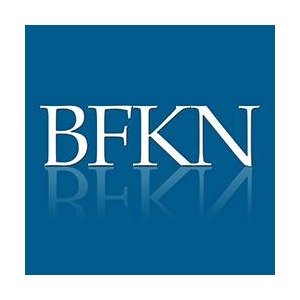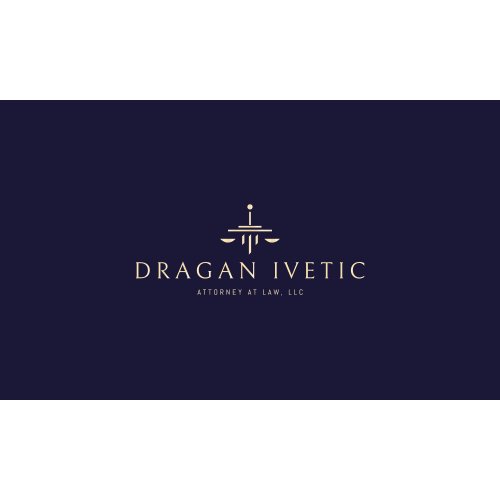Best Conveyancing Lawyers in Chicago
Share your needs with us, get contacted by law firms.
Free. Takes 2 min.
Free Guide to Hiring a Real Estate Lawyer
List of the best lawyers in Chicago, United States
About Conveyancing Law in Chicago, United States
Conveyancing is the legal process of transferring the ownership of real property from one party to another. In Chicago, as in much of the United States, conveyancing involves a series of legal steps and documentation to ensure the proper and lawful transfer of land and buildings. The process often includes drafting and reviewing contracts, conducting title searches, resolving any issues or disputes, managing financial settlements, and facilitating the final signing and recording of ownership documents with the relevant government authorities. Chicago conveyancing must conform with Illinois state and local Cook County requirements, which makes it crucial to understand both the general principles and the specific local laws regulating property transfers.
Why You May Need a Lawyer
Many people in Chicago seek legal assistance for conveyancing to ensure a smooth, secure, and legally compliant property transaction. Common situations where you may need a lawyer include:
- Buying or selling a home or commercial property
- Transferring property between family members
- Dealing with estate or inheritance property transfers
- Resolving disputes over property boundaries or ownership
- Identifying and addressing title defects or liens
- Drafting and reviewing property sale contracts
- Ensuring compliance with local tax and transfer requirements
Legal professionals can protect your interests, help avoid costly mistakes, and ensure that the process meets both state and municipal legal standards.
Local Laws Overview
Conveyancing in Chicago is subject to both Illinois state law and local Chicago ordinances. Key aspects to be aware of include:
- Title Examination: Before a sale can be finalized, a comprehensive title search is required to confirm that the seller has legal ownership and to uncover any claims, liens, or encumbrances.
- Transfer Taxes: Both the State of Illinois and the City of Chicago impose real estate transfer taxes. Chicago has its own local transfer tax, which differs from other municipalities in Illinois.
- Disclosure Requirements: Illinois law mandates that sellers must provide specific disclosures regarding the condition of the property, which must be accurate and complete.
- Deed Preparation and Recording: The transfer of property is typically finalized with a deed that must be properly prepared, executed, and recorded with the Cook County Recorder of Deeds.
- Municipal Requirements: Chicago imposes certain specific rules, such as providing a water certificate and meeting zoning compliance prior to closing.
- Attorney Review: Purchase agreements often include an attorney review period allowing both parties' lawyers to modify terms or address concerns within a set timeframe.
Additional local nuances and requirements may apply, underscoring the value of seeking legal advice tailored to your specific circumstances.
Frequently Asked Questions
What is conveyancing?
Conveyancing is the legal process by which ownership of real estate is transferred from one person or entity to another. It involves various steps, including drafting contracts, conducting title searches, and finalizing the transaction with the appropriate government bodies.
Do I need a lawyer to buy or sell property in Chicago?
While Illinois law does not strictly require a lawyer for property transactions, it is highly recommended due to the complexity of local requirements and the need to protect your interests throughout the conveyancing process.
What documents are needed for conveyancing?
Common documents include the purchase and sale agreement, deed, property disclosures, title report, transfer tax declarations, and closing statements. Additional documents may be needed depending on the specifics of the property and the parties involved.
How long does conveyancing take in Chicago?
The process can range from several weeks to several months, depending on factors such as title issues, financing, negotiations, and municipal requirements.
What are the main costs involved in conveyancing?
Costs typically include attorney fees, title search and insurance fees, recording fees, municipal transfer taxes, state transfer taxes, and other administrative costs.
What is a title search and why is it important?
A title search reviews the historical ownership records of the property to ensure there are no legal issues, such as unpaid liens or disputes, that could impact the new owner. It is an essential part of risk protection in conveyancing.
What disclosures are required by law?
Illinois law requires sellers to disclose certain material facts about the property, like defects, lead-based paint (for homes built before 1978), flooding, and other known issues. Failing to do so can lead to legal consequences.
What is the attorney review period?
Many Chicago property contracts include an attorney review period, usually five business days, during which each party’s attorney can suggest modifications or raise concerns before the contract becomes binding.
What taxes apply to property transfers in Chicago?
Both State of Illinois and City of Chicago real estate transfer taxes apply. The amounts depend on the value of the property and current tax rates. Buyers and sellers often negotiate who covers which portion in the contract.
How do I record a deed after conveyance?
The deed must be properly executed and submitted to the Cook County Recorder of Deeds office for official recording. This step finalizes the transfer and updates the public land records.
Additional Resources
For more information and assistance on conveyancing in Chicago, the following resources can be helpful:
- Illinois State Bar Association - Offers legal education materials on real estate and conveyancing.
- Chicago Department of Law - Information on local ordinances affecting property transactions.
- Cook County Recorder of Deeds - Official recording of deeds and real estate documents.
- Illinois Department of Professional Regulation - Information on licensed attorneys and real estate professionals.
- Legal Aid Chicago - Provides resources and limited free assistance for qualifying individuals.
- Chicago Title Insurance Companies - For title searches and insurance products commonly used in conveyancing.
Next Steps
If you are planning to buy or sell real estate in Chicago, consider these steps to safeguard your interests:
- Gather all relevant documents, including titles, contracts, and disclosure statements for your property.
- Contact a qualified Chicago real estate lawyer who can review your circumstances and guide you through the conveyancing process.
- Discuss your goals, timeline, and budget with your attorney to ensure they understand your needs.
- Attend all required appointments and respond promptly to information requests by your lawyer or real estate professionals involved.
- Ensure that all paperwork, taxes, and compliance requirements are addressed before closing the transaction.
Taking these actions early in the process can help you avoid expensive mistakes and ensure a legally sound property transfer. Seeking professional legal advice is strongly recommended, especially in complex cases or unfamiliar situations.
Lawzana helps you find the best lawyers and law firms in Chicago through a curated and pre-screened list of qualified legal professionals. Our platform offers rankings and detailed profiles of attorneys and law firms, allowing you to compare based on practice areas, including Conveyancing, experience, and client feedback.
Each profile includes a description of the firm's areas of practice, client reviews, team members and partners, year of establishment, spoken languages, office locations, contact information, social media presence, and any published articles or resources. Most firms on our platform speak English and are experienced in both local and international legal matters.
Get a quote from top-rated law firms in Chicago, United States — quickly, securely, and without unnecessary hassle.
Disclaimer:
The information provided on this page is for general informational purposes only and does not constitute legal advice. While we strive to ensure the accuracy and relevance of the content, legal information may change over time, and interpretations of the law can vary. You should always consult with a qualified legal professional for advice specific to your situation.
We disclaim all liability for actions taken or not taken based on the content of this page. If you believe any information is incorrect or outdated, please contact us, and we will review and update it where appropriate.

















